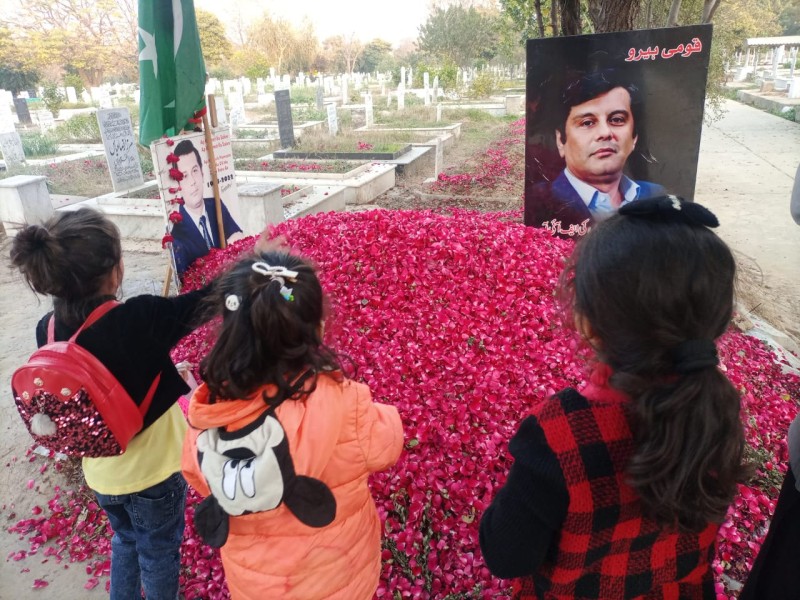Sharif, 49, was a TV anchor who was critical of Pakistan’s powerful military who fled the country in August over threats to his life and was shot dead in Nairobi in October. Local police termed his killing a case of mistaken identity as they were searching for a similar vehicle involved in the kidnapping of a child.
Sharif fled Pakistan to avoid arrest in several cases including allegations of sedition and making comments against the military on his show.
The 592-page investigation report seen by the OCCRP said the Kenyan police issued contradictory statements several days after the killing. A team of two Pakistani officials traveled to Kenya and spoke with police and Sharif’s hosts, brothers Waqar Ahmed and Khurram Ahmed.
The report also noted contradictions in autopsies performed in Kenya and Pakistan. The report in Pakistan found 12 injuries on Sharif’s body, while the Kenyan report noted just two gunshot wounds.
Javeria Siddique, Sharif’s widow, is not satisfied. “There are huge differences in investigations of Pakistan and Kenya and no one is willing to give justice to my husband,” she told OCCRP in an interview.
She questions why the report does not address the military officials the family believes targeted her husband. “It's very easy to register a case but why are the police not registering a case on Sharif, when my mother-in-law wants it?” she said.
According to the report, Khurram Ahmed told investigators he was in the car with Sharif, traveling home from dinner, when they encountered a roadblock.
Khurram Ahmed said he thought the roadblock had been set up by robbers. When they refused to stop, someone shot at them.
Khurram Ahmed then called his brother Waqar Ahmed, who told them to keep driving until they reached the family’s farmhouse. By the time they got there, Sharif had died, the report quoted Khurram Ahmed as saying.
Saddique says she does not understand why Kenyan police have not been prosecuted. “Is the Pakistani government going to ask the Kenyan government to [surrender] those people involved via Interpol to give them punishment?” she asked.
Saddique noted that Pakistani authorities have violated the family’s privacy by publishing their photos, ID cards, phone numbers and even photos of Sharif’s body in their report. “This is so painful, it should not be accessible to the public,” she told OCCRP.
She says she wants the United Nations and its International Court of Justice to investigate the case.
Pakistan’s Supreme Court has taken “suo moto” notice of the investigation, meaning that without being asked, it has indicated an interest in the investigation, but a legal expert says that falls far short of the action needed.
Osama Malik, senior International criminal law expert, told OCCRP that the normal course of events would be for the court to take action on the first information report (FIR) that should have been lodged by police in response to Sharif’s mother’s complaint. A FIR is necessary to set the legal process in motion.
“The Supreme Court has failed to order the registration of FIR against those who have been [named] by Sharif’s mother,” Malik said, including high-ranking army officers. “Until these sacred cows are charged and investigated, it will be impossible to investigate this case."
He also questioned how effective Pakistani legal procedures will be in another country. "It is also unclear how the Supreme Court's suo moto notice can help with investigation in a foreign jurisdiction, including Dubai but particularly in Kenya, where the local police, after initially admitting the killing, have not been very cooperative," said Malik.



